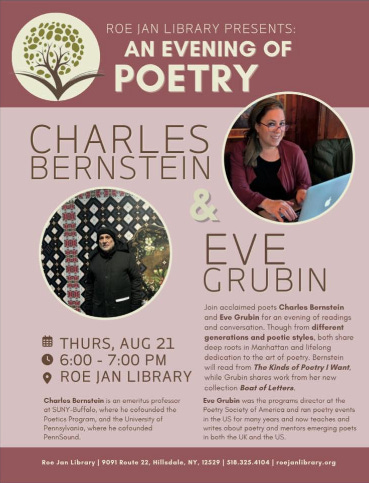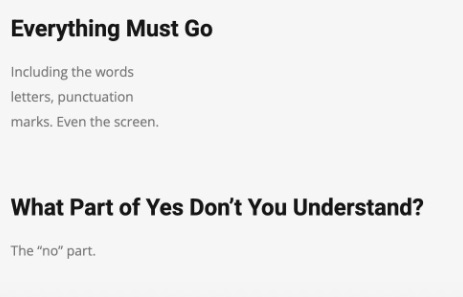I have followed Charles Bernstein’s work for many years and, I have to admit, I have had my ups and down with it: I have found his writing to be exhilarating, annoying, frustrating, funny, profound, weird, boring, and moving.
Full disclosure: I grew up in the apartment building on what he calls “the deep upper west side” (92nd and Broadway) where he lived for many years with his family. I may have mentioned this in a previous substack newsletter, but what I didn’t mention is that I believe that his Language poetry energy somehow filtered through the pre-war brick and strong walls and wood floors and into my childhood home.
My parents raised me on the poetry of earnestness, transparency, connection, communication, and meaning. I grew up on William Blake, Emily Dickinson, Edna St Vincent Millay and later on Lucille Clifton, Galway Kinnell, and Sharon Olds. Bernstein writes a very different kind of poetry. Very. In fact, recently when my father told Bernstein about the poets he liked and said, ‘I know you don’t like them,’ Bernstein replied, ‘It’s not that I don’t like them. They are just my ideological enemies.’
Although I embrace the poetry I grew up on, and this is reflected in the poems I write, I believe that my conscious and unconscious absorption of the avant garde poetry that Bernstein writes and supports, has only enhanced my own work. Language poetry challenges and pushes against poetry that thinks it is communicating with ease and this pushing can help deepen and complicate the writing process, making a poem more playful, intellectually rigorous, and less certain of itself.
Here are two recent poems by Bernstein that I find particularly playful and challenging.
The first poem, on the one hand, might be saying that words and language and writing can’t make meaning- everything must go in order for meaning to emerge (which raises the questions: if everything goes then what is left to make meaning?) On the other hand the poem may be saying that everything must die. Everything does die.
The second poem inverts the cliche and plays with it, emphasizing that poets understand the no, the silences, the fact that everything must go. That meaning does live in the gaps, the silences, the reticence.
I am delighted to be reading with Charles Bernstein in Hillsdale on August 21st. I’ll be reading from my just released book Boat of Letters and he’ll be reading from The Kind of Poetry I Want.
PROMPT: Consider writing a poem that inverts a cliche and pushes against meaning, that is not certain of itself, that is playful. See what happens!





